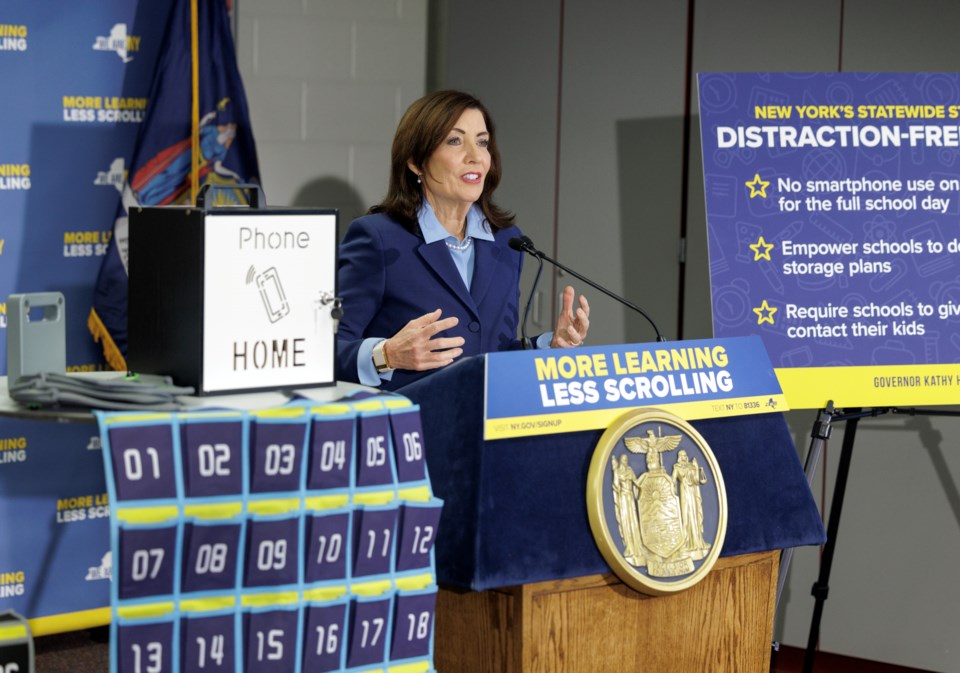By Julia Welter
A new statewide proposal from Governor Kathy Hochul could drastically change how students across New York use their phones at school, including here at Irvington High School.
On April 29, Governor Hochul announced a plan to ban student cellphone use from “bell to bell” during the school day. If passed, this would prohibit the use of smartphones, smartwatches, and tablets in all public and charter schools, with the goal of reducing distractions and improving student mental health.
The proposed ban has sparked a lot of debate. Supporters argue that phones negatively impact students’ focus and well-being. Hochul’s office released a report titled More Learning, Less Scrolling, citing research linking phone use to increased anxiety, cyberbullying, and lower academic performance. Many educators have praised the plan as a much-needed reset.
But others aren’t convinced. Critics, including some teachers, parents, and students, worry about the practicality of enforcement and the impact on student autonomy. Michael Mulgrew, president of the United Federation of Teachers, warned that the policy could lead to more disciplinary issues.
At Irvington High School, phones are currently kept in pockets on the wall, known as “phone hotels,” during class, but students can use them freely between periods, at lunch, or before and after school. That flexibility may disappear under the new policy.
If the statewide ban is enacted, schools like ours would need to collect or restrict phone access for the entire day. The state has allocated $13.5 million to help with logistics, like buying locking pouches or phone lockers, but many questions remain about how the policy would work in practice.
Junior Carter Pollack, like many students, believes the ban goes too far. “Phones are part of how we manage our lives,” he said. “Taking them away all day won’t magically make students less stressed. It just gives us less control.”
As the proposal moves through the state legislature, it’s clear the conversation around phones in schools is far from over. For now, Irvington’s approach remains relatively balanced, but if the ban passes, students and staff will both need to adjust to a new reality where the school day is entirely screen-free.









Comments are closed.